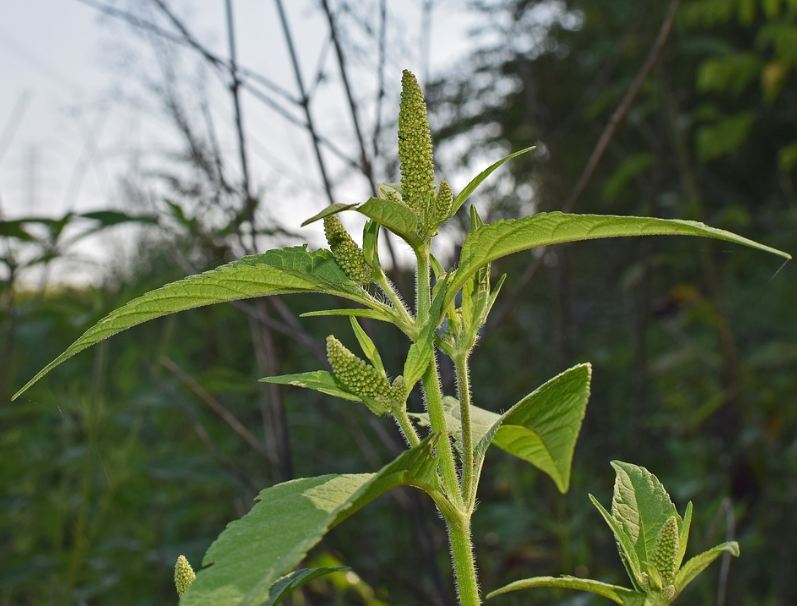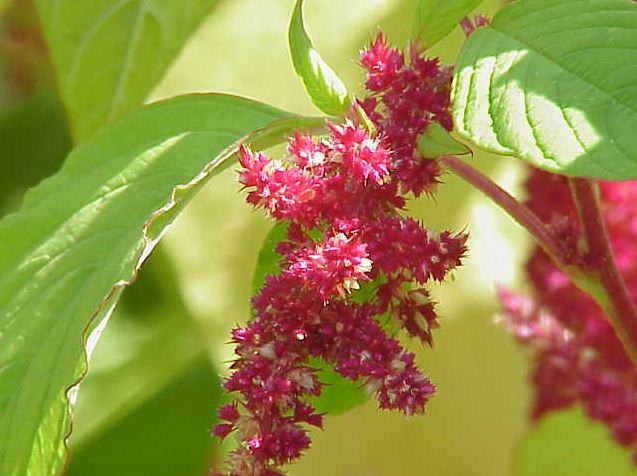Adorning your meal with some leafy vegetables is an excellent way of adding some color to your plate without gaining any extra calories. Packed with nutrients, these greenies help you maintain a healthy lifestyle. Although we all are aware of the numerous health benefits of leafy greens, many are bored with eating the same greens every day. If you, too, are looking for a way to spice up your daily veggies, worry not! We have found the perfect leafy vegetable for you!
What are Amaranth Leaves?
As the name suggests, amaranth leaves are the vivid green part of the short-lived perennial plants known as amaranths from the genus Amaranthus. Also referred to as callaloo, Amaranths are usually grown in tropical regions of Africa, Asia, and the Caribbean. These plants are quite multi-functional and can be cultivated for various purposes: the leaves of some species are consumed as leafy vegetables while their seeds make pseudocereals. The use of amaranths dates back to pre-Columbian times when the Aztecs and Incas consumed amaranth leaves and grains as a staple food.
Today we can see a resurgence in demand for amaranth plants worldwide as more and more people are being introduced to their benefits gradually. Initially, people only utilized its grain portion as a substitute to rice; however, research proves that its leaves are equally nutritious with a myriad of health benefits!
Below we have listed the top 7 benefits of Amaranth leaves and why you should incorporate them in your diet plan:
Boosts Your Immune System
Fresh amaranth leaves are a natural storehouse of vitamin-C – a water-soluble antioxidant that plays an essential role in protecting your body against infections and speeds up the process of wound healing. Not only does it make your skin look fresh and glowy but also slows down the aging process by forming a protective barrier against free radicals present in the air. A single serving of 100 g of amaranth leaves will fulfill 70% of your recommended daily intake of vitamin-C, boosting your immunity and maintaining overall health.
Rich Protein Source
Another reason you should add amaranth leaves to your diet is that they are an inexpensive protein-rich source. They are loaded with protein; in fact, they surpass most whole-grains in protein concentration, including oats! A protein-packed diet is imperative for body growth: proteins are responsible for the formation of new cells and the repair of old ones. Moreover, they are also an energy source and promote metabolic functionality. Proteins also aid in weight loss as they suppress appetite by lowering the insulin levels in the blood.
Furthermore, protein received from a plant source is recommended by dieticians and nutritionists as it contains very little fat and cholesterol compared to animal-sourced protein. A single serving of 100 g of fresh amaranth leaves contains just 23 calories, making it the go-to food for those looking to lose weight.
Packed with Vitamin K
If you want strong and healthy bones, a daily serving of amaranth leaves will keep you covered! Out of all the leafy vegetables, amaranth leaves contain the highest vitamin-K concentration – the nutrient responsible for promoting good bone health. A 100 g serving of fresh amaranth greens fulfills a whopping 95 percent of your daily vitamin-K requirements.
Vitamin K boosts osteoblastic activity in your blood cells, which in turn builds up bone mass. It also plays a vital role in blood clotting – a process that prevents excessive blood loss from the body.
Furthermore, vitamin K has proved to be increasingly beneficial for Alzheimer’s patients as it helps curb the neural damage in the brain.
Improves Vision
Amaranth leaves are at the top of every ophthalmologist’s recommendations as they are rich in vitamin A – the antioxidative molecule that aids vision and improves ocular (eye) health. One cup of amaranth leaves satisfies 97 percent of your daily requirement of vitamin A, making it the top choice for those looking to substitute medicines with a fresh source to improve their degrading vision. A diet rich in vitamin-A also lowers the chances of lung and oral cavity cancers in your body.
Powerful Antioxidant Agent
Amaranth leaves are full of different powerful antioxidant agents such as lutein, zeaxanthin, and beta-carotene. These flavonoid polyphenolic antioxidants work together to protect your body from excessive oxidative stress by forming a protective barrier against oxygen-derived free radicals, which cause healthy cells to mutate into cancerous cells. This barrier also slows down the process of aging and prevents other diseases.
Moreover, recent research has discovered a new peptide in amaranth leaves, which lowers inflammation in the body and alleviates the symptoms of other inflammatory-related diseases like arthritis and gout.
Improves Digestive Health
Consumption of amaranth leaves not only boosts the immune system but also promotes gut health as it is packed with dietary fiber. The high fiber content has numerous gastrointestinal benefits, which include preventing and relieving the symptoms of constipation. Dietary fiber facilitates the uptake of nutrients from the food and eases the movement of stool through your body by softening it.
Amaranth leaves can be consumed raw and do not need to be cooked or steamed as they are softer on the stomach than other leafy greens such as kale. They also ease the symptoms of other digestive problems like diarrhea and hemorrhages; so, a regular intake of amaranth leaves will keep your gut healthy and strong.
Loaded with Minerals
These leafy greens are loaded with minerals like iron, magnesium, potassium, copper, and zinc, which are imperative for maintaining health. The high potassium content in amaranth leaves lowers the risk of atherosclerosis by dilating the blood vessels around your heart and alleviating excessive strain on it. It also reduces your chances of stroke by aiding the travel of oxygen to the nervous system, which improves brain activity and cognitive function. A 100 g serving of amaranth leaves satisfies about 13 percent of the daily potassium requirement.
Potassium also works together with magnesium to prevent hypertension, which, in turn, lowers the chances of many heart diseases. Magnesium itself has numerous health benefits, such as promoting bone health and preventing bone-related diseases such as osteoporosis. It also plays a leading role in energy and protein synthesis and regulating glucose levels and blood pressure in the body. About 14 percent of your daily magnesium requirement is covered by just a 100 g serving of amaranth leaves.
The Takeaway
Amaranth leaves have countless health benefits as they contain all the necessary nutrients required for maintaining health. A regular serving of these leafy greens will protect you from free radicals and lower the risks of various diseases like osteoporosis and cancer. However, like other leafy vegetables, amaranth leaves, too, contain a fair amount of oxalates, which could aggravate conditions of kidney stones and gallstones. Although people are rarely allergic to it, it is best to consult your dietician before adding amaranth leaves to your diet. Once cleared by the dietician, enjoy amaranth leaves to enjoy fresh skin and a healthy immune system.


